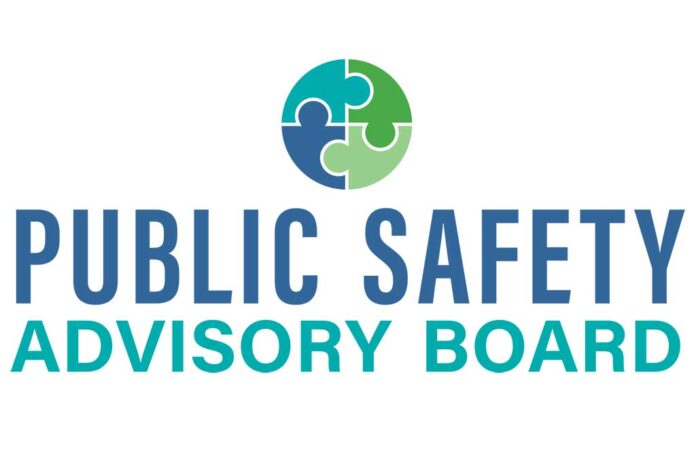After three months of debate, Tigard City Councilors finally approved the creation of an advisory board to oversee the City’s police department standards and practices.
Councilors unanimously approved creation of the Tigard Public Safety Advisory Board at their Sept. 1 meeting following lengthy debate over what type of authority the new body would ultimately exercise. As originally envisioned by its chief proponent, Mayor Jason Snider, the board would have held limited power to enact policy decisions of its own accord. But after pushback from Police Chief Kathy McAlpine and the Tigard Police Officers Association, those parameters were trimmed and now limit the board to an advisory role only. Any recommendations made by the board would go before the City Council for consideration and possible approval.
“I’m very excited about what I hope will be a good community conversation about this,” said Councilor Liz Newton. “I appreciate everybody who weighed in and had thoughts to share. I appreciate everybody’s efforts on this, and I’m looking forward primarily to the community having a really good conversation on these issues.”
Despite some initial disappointment, Snider also praised the move and said he wants the city to provide an example for others to follow.
“I think we got to a really good place,” he said. “I think we got to a really positive place that our community can move forward on. It’s a place our city can lead on.”
As approved by the Council, the new advisory board is a part of a broader anti-racism platform the City is bringing into motion following the death of Minneapolis man George Floyd in May at the hands of four police officers. Mr. Floyd’s death resulted in murder charges being brought against the officers involved, as well as months of protests across the country. It also resulted in renewed interest in many quarters in reforming police practices that many view as discriminatory against Black, Indigenous and People of Color (BIPOC).
In Tigard, Snider took the lead in a series of actions intended to fight racism and discrimination, one of which was the formation of what was initially dubbed the Tigard Public Safety Transformation Commission. In the end, the name of that body was changed to the Tigard Public Safety Advisory board to reflect a non-decision-making roll. The new board will be comprised of 15 members, including the Police Chief, a member of the Tigard Police Officers Association, the department’s union, the City Attorney, Municipal Court Judge, the President of the Tigard High School Black Student Union, the Tigard Youth City Councilor, a Tigard City Councilor, a licensed mental health professional, a representative of the business community and six at-large Tigard residents, preferably those who can best represent the BIPOC, LGBTQIA+ and the faith communities.
Initial selection of board members began in September with the creation of a caucus comprised of 16 candidates. A community vote held by social media, web platforms, comment cards and other channels is intended to narrow that field down to six members and two alternates.
Board membership is also intended to be an educational experience. To that end, members will study law enforcement standards and practices and spend time observing Tigard Police Officers as they work, as well as watch the movie “Race in Oregon History – A Historical Perspective” and read “So You Want to Talk About Race” by author Ijeoma Oluo.
The board will also be required to create a work plan subject to council approval. The work plan will explicitly cover the issues the board will handle during its tenure and will include a wide range of topics raised by the public.
The board will operate on a basis of consensus. In practice, this will mean that any board recommendation approved by at least 12 of the 15 members will be forwarded to the City Council for consideration or action.
While the work plan may contain a range of issues, many of them are likely to fall outside City purview. Input received to date suggests public interest in issues ranging from discrete policies the City could implement now to complex changes that would require Congressional action. Further, any recommended changes that could affect police wages, hours or working conditions will be contingent on existing collective bargaining agreements between the City and the police union.
This is one of the areas of concern raised by the Tigard Police Officers Association during debate over the board’s formation.
“The concern was that, right now, the topics are moved into different groups of authority,” City Attorney Shelby Rihalla at a Sept. 1 Council meeting. “There are policies, further actions, council authority over an IGA (intergovernmental agreement), collective bargaining and advocacy at state or fed. level. So, our position is that if it fits into any bucket other than the first one those are what council is going to be involved in.”
The concerns raised by law enforcement, Rihalla added, stem from any outside ability to mandate regulations that would control day-to-day police operations.
“It is something the chief normally decides, and she fears it will take all authority away from the chief,” Rihalla said. “Those are so day-to-day managerial, that the fear is taking operational control away from the chief.”
Newton said it never was the intent of the Council to take away decision-making authority from the Chief.
“We have to be careful not to commit to approval of something the Council might not approve,” she said. “We do want them to have full authority to talk about whatever they want to talk about.”
Applications for the new board closed on Sept. 16 after 38 were received, City Manager Marty Wine said, and the community caucus to select the finalists is now underway. Wine told the council at its Sept. 22 meeting that a potential board facilitator has been identified, and other work needed to get it up and running is on schedule. The caucus was set to close on Sept. 30.
More information can be found on the Board’s official website: www.engage.tigard-or.gov/public-safety-advisory-board, including information on the applicants and the caucus process.























